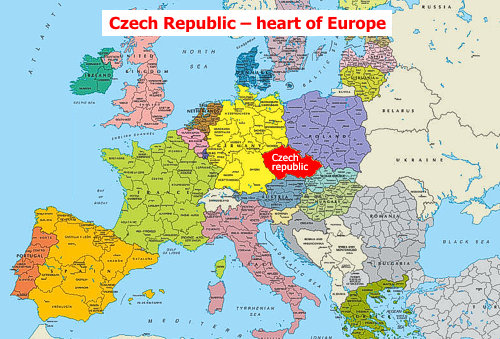Nuclear power projects can be problematic for members of the European Union. The EU has strict rules about the purchase of nuclear reactors, the involvement of government financing, the purchase of nuclear fuel, etc. Some members of the E.U. such as Austria are very anti-nuclear and will sue other members who don’t abide by the rules.
The Czech Republic is a member of the E.U. The Dukovany nuclear power plant is about thirty miles from the Austrian border. It is the first nuclear power plant built in what is now the Czech Republic. The contract for the Dukovany nuclear power plant was signed between Czechoslovakia and the Soviet Union in 1970. Construction began in 1974 and four nuclear power reactors were connected to the electrical grid between 1985 and 1987.
The Czechs want to build a new reactor at the Dukovany. The new reactor is intended to replace one of the old nuclear reactors from the Soviet-era. The Czech would like to purchase the new reactor from Russia but in order to do that within the framework of the E.U., the Czechs will need to have the E.U. Commission exempt the Czech Republic from their strict rules on government bids.
When a member of the E.U. decides to purchase a product from a provider who is not a non-member country where exports are subsidized, an investigation can be called for if another member or the industry that provides the product in the E.U. file a complaint with the E.U. Commission. The results of such an investigation can be either a duty being imposed on the imported product or the product in question can be exempted from the subsidized import rule.
The Czech Republic is currently involved in negotiations with the E.U. Commission, but they are not sure that they will be able to get the exemption they will need. There will be another round of talks as soon as the Czechs respond to E.U. Commission questions with a deadline in March.
The E.U. Commission reluctantly approved the recent Hungarian Paks II nuclear power reactor deal with Russia last year after a contentious debate. The final deal between Hungary and Russia was based on a deal between the Hungarian government and the Russian government which some claimed side-stepped the problem with buying products from producers in non-member countries.
Austria is suing Hungary for violating the E.U. rules about state aid for such projects. Germany also shares a border with the Czech Republic and it is strongly opposed to the construction of any more nuclear power reactors in Europe.
If the Czechs fail to get the exemption, they may go with a government to government deal like Hungary did for their Paks II project. Hungary awarded a contract to Russia’s Rosatom for two new nuclear power reactors. The Hungarians did not request bids for the project because they said that only Rosatom had the technical capability to replace old Soviet-era power reactors. Russia is giving Hungary a twelve billion dollar loan to help with the fifteen billion dollar nuclear project.
